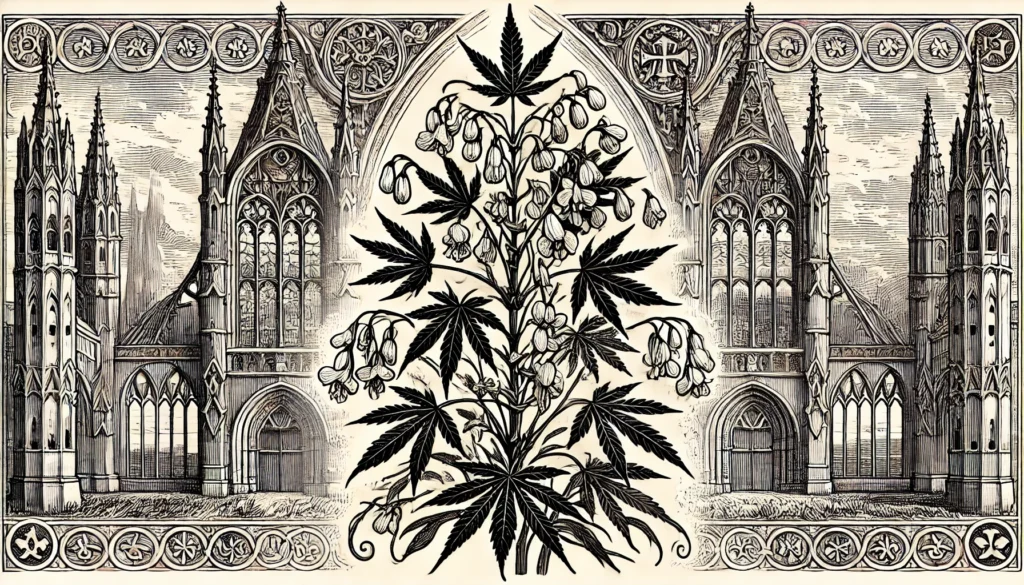

Home » Cat Plants » The Threat of the Indian Hemp Plant to Cats

Indian hemp (Apocynum cannabinum), also known as dogbane, is a perennial herbaceous plant native to North America. This plant is highly toxic to cats, dogs, and horses. All parts of the Indian hemp plant contain cardiac glycosides, which are poisonous compounds that can cause severe health issues in felines.
Indian hemp is commonly found in open wooded areas, ditches, and hillsides, often near streams or in moist, shady places.
Ingestion may cause mild gastrointestinal upset, but is generally not life-threatening.
Ingestion can result in mild symptoms like vomiting, diarrhea, or drooling. Rarely fatal but may require veterinary care.
Eating these plants can lead to more pronounced symptoms like abdominal pain, lethargy, or difficulty breathing. Veterinary intervention may be necessary.
Ingesting even small amounts can cause severe symptoms like organ damage, seizures, or cardiac failure without rapid treatment.
All parts of these plants are extremely poisonous to cats and can quickly lead to death, even with immediate veterinary care.
** Please note: Please note that toxicity level can vary based on the amount ingested and the specific cat. It's always best to keep these plants completely inaccessible to cats and seek immediate veterinary care or call the poison hotline if you suspect your cat has ingested any part of a toxic plant.
If a cat ingests any part of the Indian hemp plant, they may experience several symptoms due to the toxic cardiac glycosides present in the plant. Some of the most common symptoms include:
If you suspect your cat has ingested Indian hemp, it is crucial to seek veterinary care immediately. Your veterinarian will likely follow these steps to diagnose and treat your cat:
For more information on what to do if your cat has ingested a poisonous plant, visit the ASPCA Animal Poison Control Center.

A: Indian hemp is toxic to animals, including cats. Its milky-white sap contains cardiac glycosides, which can be harmful if ingested by pets.
A: Hemp itself is generally not toxic to cats, and CBD products derived from hemp can be safe and effective for managing pain in pets. However, it’s essential to use these products under veterinary supervision to ensure proper dosage and safety.
A: Indian hemp is considered harmful due to its toxicity and invasive nature. It poses risks to domestic livestock and is classified as a noxious weed.
A: Indian hemp and true hemp (Cannabis sativa) are different plants. Although sometimes referred to as Indian hemp, true hemp is primarily used for its fibers and medicinal properties, while Indian hemp is toxic.
A: Yes, Indian hemp is toxic to cats. Ingesting any part of this plant can cause serious health issues such as vomiting, diarrhea, and heart problems in felines.
A: Dogbane hemp is highly toxic to cats due to its cardiac glycosides. These compounds can cause severe cardiac issues, so it’s crucial to keep cats away from this plant.
Indian hemp has a long history of use by Native American tribes. The plant’s strong, silky fibers were used to create cordage, string, and thread for making bags, mats, nets, and clothing. Some tribes also used Indian hemp for its medicinal properties, preparing weak teas from the berries and roots to treat heart ailments, induce sweating and vomiting, and prevent hair loss.
Despite its historical uses, Indian hemp is now recognized as a highly toxic plant to many animals, including cats. It is essential for pet owners to be aware of the risks associated with this plant and to keep their feline companions away from it.
Please note: The information shared in this post is for informational purposes only and should not be considered as veterinary medical advice.
🐾 A hilarious or heart-melting cat video
🐾 Our latest paws-on review of a cool cat toy